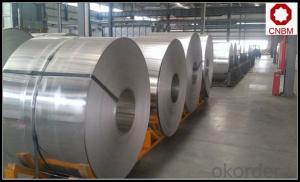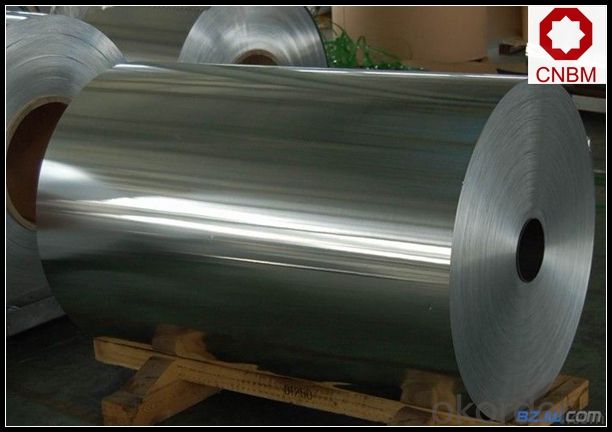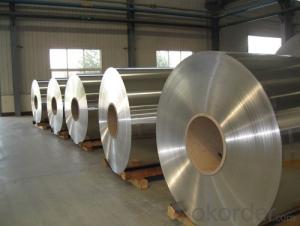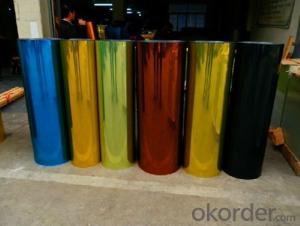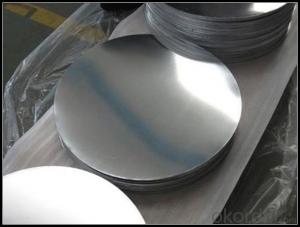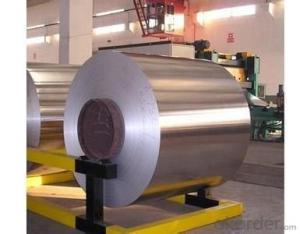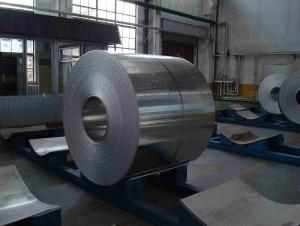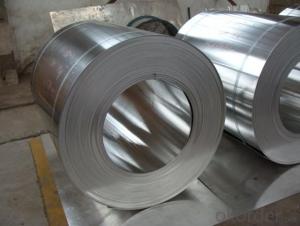1050 Aluminum Alloy Coil Sheet - Mill Finish Aluminum Coil 1050 H24 1100 H14
- Loading Port:
- Shanghai
- Payment Terms:
- TT OR LC
- Min Order Qty:
- 5 m.t.
- Supply Capability:
- 10000 m.t./month
OKorder Service Pledge
OKorder Financial Service
You Might Also Like
Specification
1. Specification of Mill Finish Aluminum Coil 1050 H24 1100 H14
Thickness | 0.1mm-10mm |
Popular Thickness | 0.1mm/0.2mm/0.25mm/0.3mm/0.6mm/0.8mm/1.0mm/1.2mm/1.5mm/2.0mm/3.0mm... |
Width | 20mm-2500mm |
inner diameter | 505mm 508mm 605mm |
Material | 1050,1060,1070,1100,1200,3003,3004,3005,5052,5005,5754,5083 |
Temper | O,H12,H14,H16,H18,H22,H24,H26,H32,H34,H36,H38,H111,H112 |
Surface | mill finish |
Packing | Export standard wooden pallets |
Payment Terms | 100% irrevocable L/C at sight or 30% T/T in advance as deposit,70% balance against the B/L copy |
Minimum Order Quantity | 5000kg |
Delivery time | 15-25 days after receiving L/C or deposit |
Remark | Specific requirement of alloy grade, temper or specification can be discussed at your request |
2. Application of Mill Finish Aluminum Coil 1050 H24 1100 H14
(1).Interior: wall cladding, ceilings, bathrooms, kitchens and balconies, shutters, doors...
(2).Exterior: wall cladding, facades, roofing, canopies, tunnels,column covers , renovations...
(3).Advertisement: display platforms, signboards, fascia, shop fronts...
3. Feature of Mill Finish Aluminum Coil 1050 H24 1100 H14
*Such coil is specially designed to replace aluminum ingot, due to the high export tax of aluminum ingot, the coil has better price than ingot.
*This type of coil can fit customer's remelting furnace just like ingot, no need to make any change to the production line that was previously used for ingot. The standard coil size and weight is very suitable for the feed gate of furnace.
*This type of coil causes less material wastage than ingot when remelted.
*Our coil is made directly from ore, no need to go though the ingot making process, quality is much better than other suppliers who use ingot scrap to make coil.
Be free from Oil Stain, Dent, Inclusion, Scratches, Stain, Oxide Dicoloration, Breaks, Corrosion, Roll Marks, Dirt Streaks and other defect which will interfere with use
4. Certificate:
SGS and ROHS(if client request, paid by client), MTC(plant provided), Certificate of Origin(FORM A, FORM E, CO), Bureau Veritas and SGS (if client request, paid by client), CIQS certificate
5. Image of Mill Finish Aluminum Coil 1050 H24 1100 H14
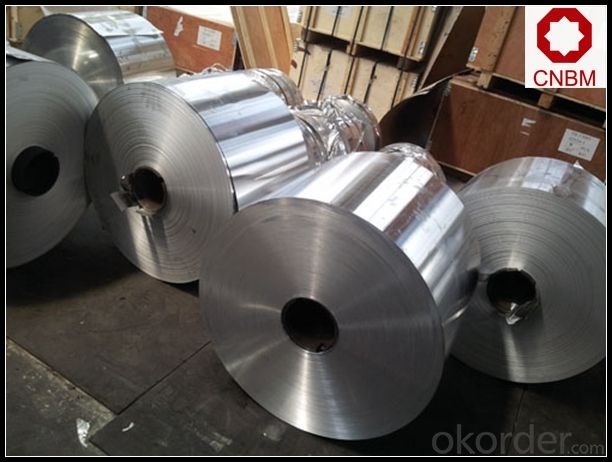
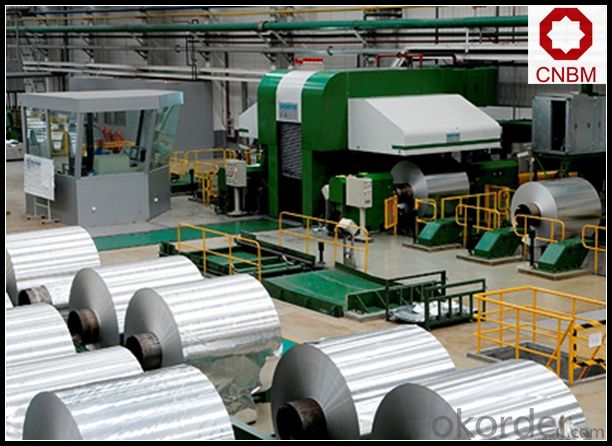
6. Package and shipping of Mill Finish Aluminum Coil 1050 H24 1100 H14
eye to wall
eye to the wall
with wood pallet (wooded case also available)
7. FAQ
1) What is the delivery time?
Dpends on actual order, around 20 to 35 days
2)What is the QC system:
We have QC staff of 20 persons and advanced equipment, each production is with MTC traced from Aluminum ingot lot.
3) What market do you mainly sell to?
Australia, America, Asia, Middle East, Western Europe, Africa etc
- Q: Is there any specific legislation or rules governing the use of aluminum coils in public areas?
- <p>There are no universal special regulations for using aluminum coils in public places. However, regulations can vary by country, state, or even city. In some cases, building codes or safety regulations might dictate the use of certain materials, including aluminum coils, in construction or other applications within public spaces. It's important to check local regulations and guidelines to ensure compliance when using aluminum coils in public areas.</p>
- Q: Why the end of the aluminum coil will have a yellow spot?
- Without coolant processing one, to see if there is no stain, so you can engage in removal of cooling liquid is not interference. Blank surface should have a layer of alumina film processing, heat, such conditions should make the cooling liquid and the alkaline layer friction reaction
- Q: Can aluminum coils be formed or shaped?
- Certainly, aluminum coils have the capability to undergo formation and shaping. Aluminum, being an extremely pliable metal, can effortlessly be molded or bent into diverse configurations without experiencing any fractures or breaks. Aluminum coils frequently find usage in numerous applications including the production of heat exchangers, condenser coils, evaporator coils, and air conditioning systems. These coils can be transformed into various structures such as flat sheets, tubes, or finned coils, catering to the specific demands of the intended purpose. The adaptability and formability of aluminum coils render them exceptionally versatile and extensively employed across multiple industries.
- Q: What are the various applications and purposes for which aluminum coils are utilized?
- <p>Aluminum coils have a wide range of applications due to their lightweight, corrosion resistance, and malleability. They are commonly used in construction for roofing and siding, in the automotive industry for car parts and body panels, in the packaging industry for cans and foils, and in electrical applications for wiring and transformers. Aluminum coils are also used in the manufacturing of heat exchangers, cooking utensils, and various consumer products. Their versatility makes them an essential material in many industries.</p>
- Q: could you please help me find information of the element aluminum??? all the information i can get will be great... thanks very mucho.... who discovered? where can i find pictures of it?
- Aluminum is from team 3 and there for has 3 electrons in its outer shell and desires 5 to fill it. it rather is going to react with any factors from team 5 that want aluminum's 3 electrons.
- Q: Aluminium forms layer of aluminium oxide when exposed to air. This prevents further reaction.However, isn't aluminium oxide an amphoteric oxide that can react with both acids and alkalis?
- Like hell, it can.
- Q: What are the different coil coating options for aluminum coils?
- There are several coil coating options available for aluminum coils, including polyester, polyurethane, fluoropolymer, and plastisol coatings. Each option offers unique benefits, such as durability, weather resistance, and aesthetics, allowing for customization based on specific requirements or desired appearance.
- Q: Never put oil in the water. Oil keeps the pasta from absorbing the sauce. Also add a little of the pasta water 3 Tbs. to the sauce. This helps sauce to adhere to pasta. The best remedy for pasta sticking. Use an aluminum stock pot. (tall pan). I don't know why but this works. I have using this stock pot for pasta for 40 years. I've tried stainless, non-stick, etc. they all stick. Except for the Aluminum.1 lb. of pasta, 4 qts. of water. 1Tbs. saltTurn burner to high,keep it therebring to boil then boil for 3 minutes, add 1 TBS salt, add pasta. Stir slowly 2 minutes, until the water boils. Cook tender enough for a fork to cut through but still a little firm
- cool tip. thanks.
- Q: What are the different types of surface defect classifications for aluminum coils?
- Aluminum coils can have various types of surface defects, which are classified and identified to categorize imperfections occurring during manufacturing. Examples of common surface defects are as follows: 1. Scratches: Linear marks or grooves on the coil surface, caused by mechanical friction or handling during production or transportation. Scratches may vary in depth and length. 2. Streaks: Discolorations or lines appearing on the coil surface, often caused by uneven coating or impurities in the aluminum material. 3. Dents: Depressions or distortions on the coil surface, resulting from mishandling, impact, or improper storage. 4. Pitting: Small, localized holes or craters on the coil surface, caused by aluminum corrosion, exposure to aggressive environments, or improper surface treatment. 5. Surface contamination: This classification includes foreign substances or contaminants present on the coil surface, such as oil, dirt, dust, or residues from the manufacturing process. 6. Oxide films: Thin layers of aluminum oxide forming on the coil surface due to exposure to air or moisture. Oxide films vary in thickness and appearance. Accurate classification and identification of these surface defects is crucial, as they can impact the quality and performance of aluminum coils. Manufacturers and customers rely on these classifications to assess coil acceptability, determine usability, and make decisions regarding potential treatment or repair.
- Q: I want to make arrows for my bow that making, i have an idea of making a wooden mold and then finding the melting point of aluminum foil and melt it, prob is that i dont have anything to melt it with my moms oven goes up to only 500F and i need one up to 1240F
- Buy the arrows. It is cheaper and probably safer.
Send your message to us
1050 Aluminum Alloy Coil Sheet - Mill Finish Aluminum Coil 1050 H24 1100 H14
- Loading Port:
- Shanghai
- Payment Terms:
- TT OR LC
- Min Order Qty:
- 5 m.t.
- Supply Capability:
- 10000 m.t./month
OKorder Service Pledge
OKorder Financial Service
Similar products
Hot products
Hot Searches
Related keywords
